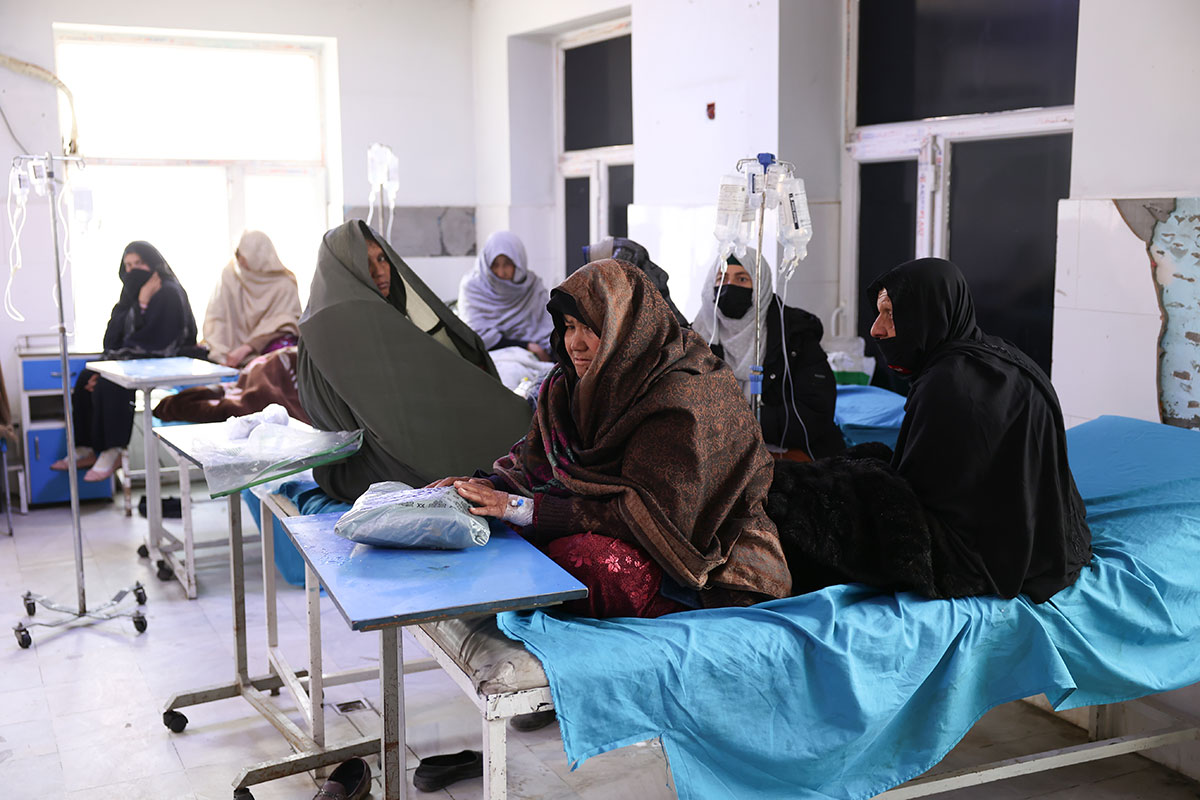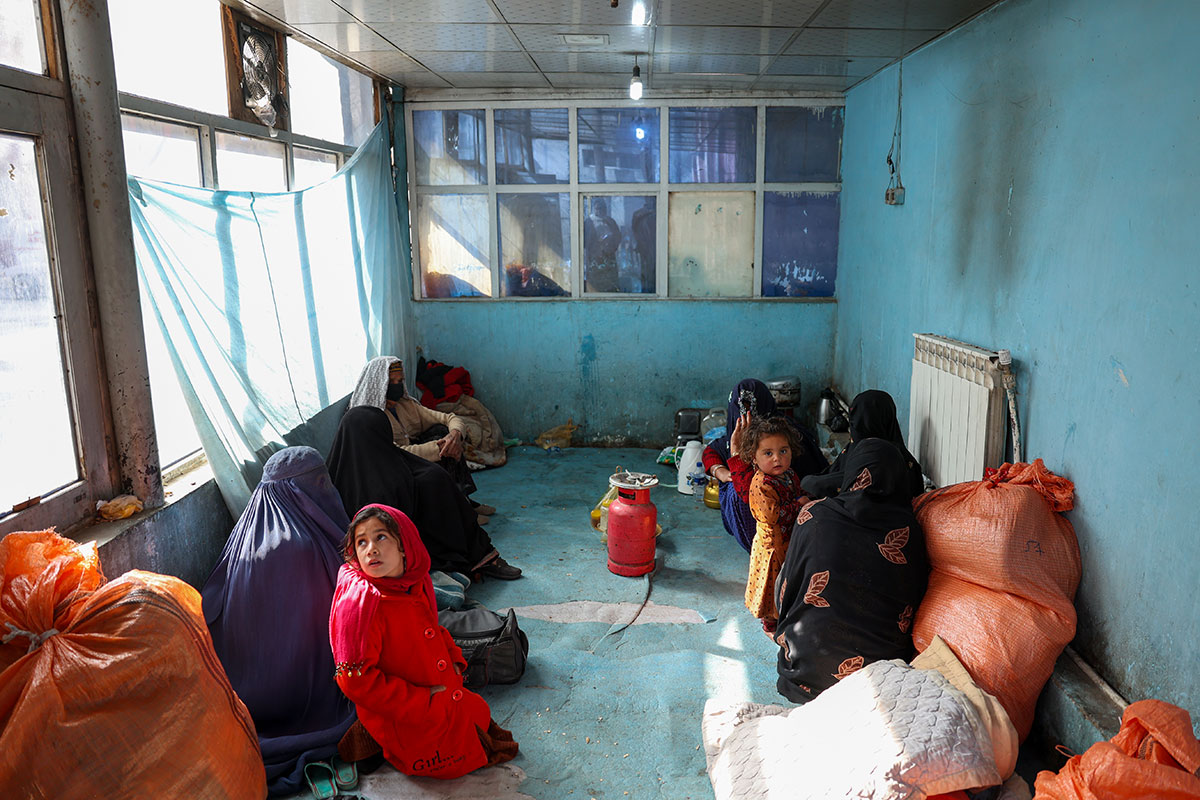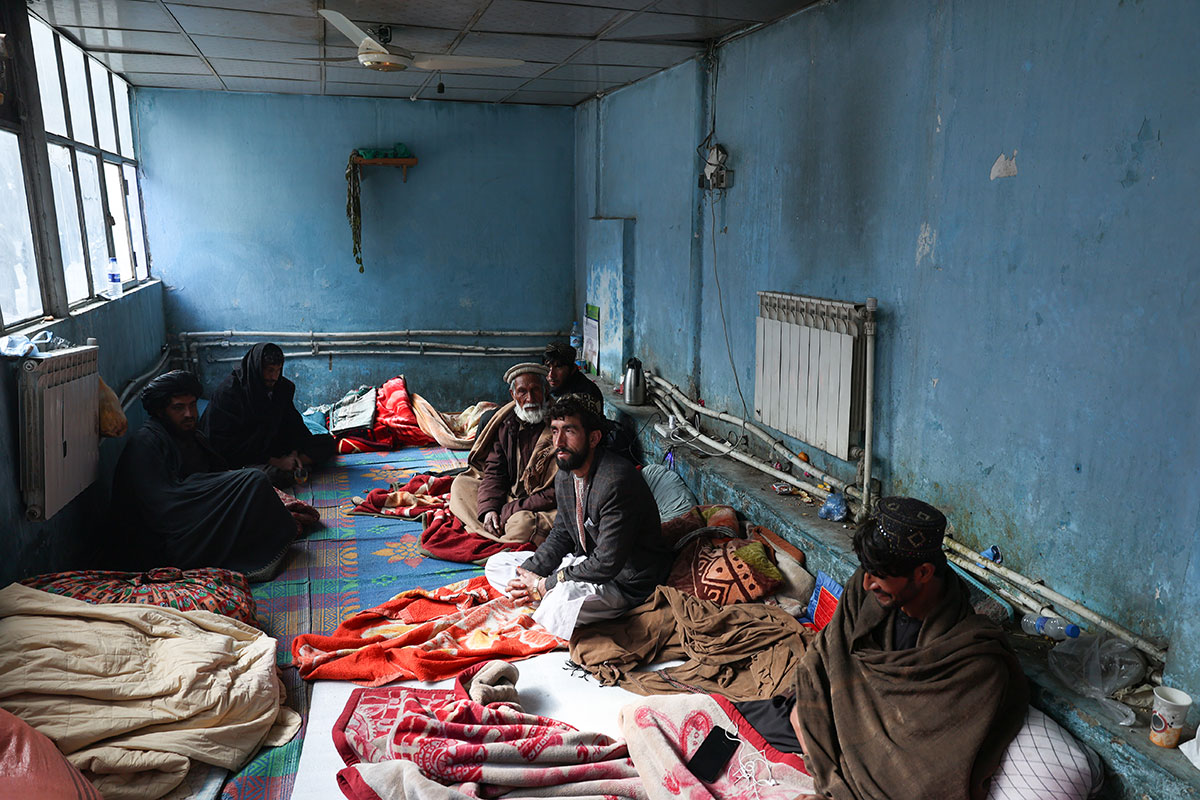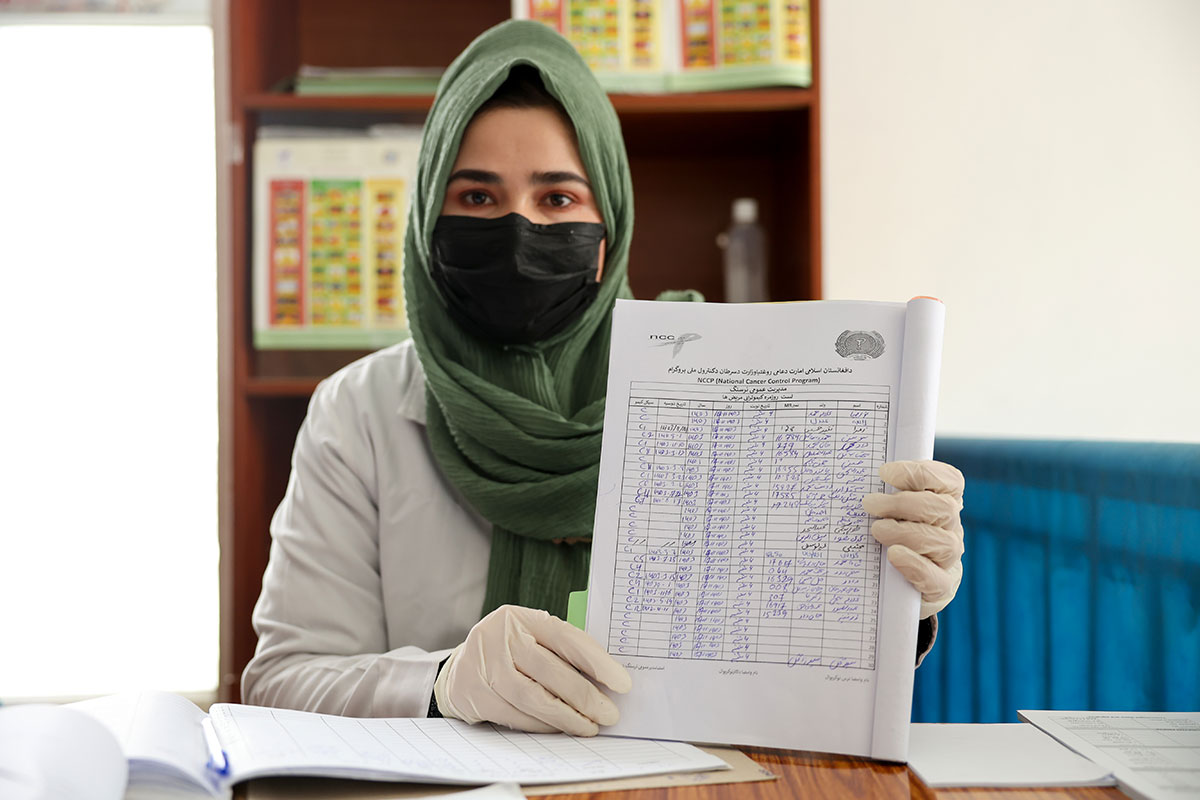 Patients in the outpatient chemotherapy ward undergoing chemotherapy. Photo credit: WHO
Patients in the outpatient chemotherapy ward undergoing chemotherapy. Photo credit: WHO
11 February 2025, Kabul, Afghanistan – In the remote mountains of Afghanistan, where the air is thin and the roads treacherous, a silent battle is being fought against an invisible enemy – cancer. For many people living in outreach areas, the journey to the National Cancer Diagnostic and Therapeutic Hospital in Kabul is a lifeline, though one paved with hardship.
Fatima, a 42-year-old mother of 4 living in Ahmader, a small village in the province of Badakhshan, first noticed a lump in her left breast a year ago. By the time she gathered enough money to travel to Kabul, the cancer had spread. Her journey from the village to Kabul took 3 days, first by donkey, then by car. Each mile was a struggle, each bump on the road a reminder of her pain.
When Fatima finally arrived at the National Cancer Diagnostic and Therapeutic Hospital, the only hospital of its kind in the country, she found it overwhelmed.
A hospital stretched to its limits
 Women patients and their caregivers awaiting care. Photo credit: WHO
Women patients and their caregivers awaiting care. Photo credit: WHO
Staff are dedicated. They are also overworked and under-resourced. Cancer medications are in short supply and many essential treatments unavailable. Capacity is severely limited. The demand for care far exceeds what the hospital can provide.
For patients like Fatima, the struggle begins long before treatment. Upon arrival, following an initial diagnosis, she was, like hundreds of others, placed on a waiting list.
“When a bed becomes free, we admit a new patient from the waiting list,” says Dr Farishta Rahmani, one of the hospital’s oncologists. “But the waiting list is long and beds are few.”
Fatima and her caregiver had no choice but to wait for days outside the hospital building, with no shelter. This is the reality for most patients and their caregivers.
Once admitted, the challenges continue. In the outpatient chemotherapy ward, three women share a single bed, receiving chemotherapy side by side.
“This is the only way we can manage,” explains Dr Khalid Ahmad Khalid, a vascular and interventional radiologist who is deputy head of the hospital. “We don’t have enough equipment, beds, or space, but we cannot turn patients away.”
The financial burden of cancer treatment is another obstacle for patients and their families. Some, like Fatima, have sold everything they own to pay for the journey to Kabul and the treatment they hope to receive. Sometimes it is not enough. For many Afghanis, the cost of travel, accommodation and treatment proves an insurmountable barrier.
 Male patients and their caregivers in a waiting area. Photo credit: WHO
Male patients and their caregivers in a waiting area. Photo credit: WHO
"The situation at the National Cancer Diagnostic and Therapeutic Hospital is dire," says WHO Representative and Head of Mission in Afghanistan Dr Edwin Ceniza Salvador.
"Patients endure unimaginable hardship, and the hospital is struggling to cope. We need immediate support to upgrade the facility, increase its capacity and ensure that lifesaving treatments are available to everyone who needs them. No one should suffer like this."
Fatima’s story is one of courage and strength. Despite enduring pain, hardship and loss, she refuses to give up. With the right support, she – and countless others like her –have a chance at survival. But they cannot do it alone.
“The facility urgently needs support to continue its work,” says Dr Khalid. “We must ensure that no patient shares a bed or sleeps on the floor. We need to provide the medicines and treatments that are so desperately needed. Most importantly, we must give hope to those who feel they have none.”
 Dr Gulroy Safari registering patients on the waiting list for outpatient chemotherapy. Photo credit: WHO
Dr Gulroy Safari registering patients on the waiting list for outpatient chemotherapy. Photo credit: WHO
"We deeply appreciate the European Union’s generous humanitarian support, which will enable WHO to improve the hospital’s cancer care service package. This critical investment will strengthen health care services and improve the well-being of countless individuals in need. Every effort to support patients like Fatima is a step towards fighting cancer, giving them a chance to reclaim their lives," adds Dr Edwin.
To protect privacy and confidentiality, some names in this story have been changed.
For further information, please contact:
Dr Manuel De Lara
Public Health Officer, WHO Afghanistan
+9378 000 5513


